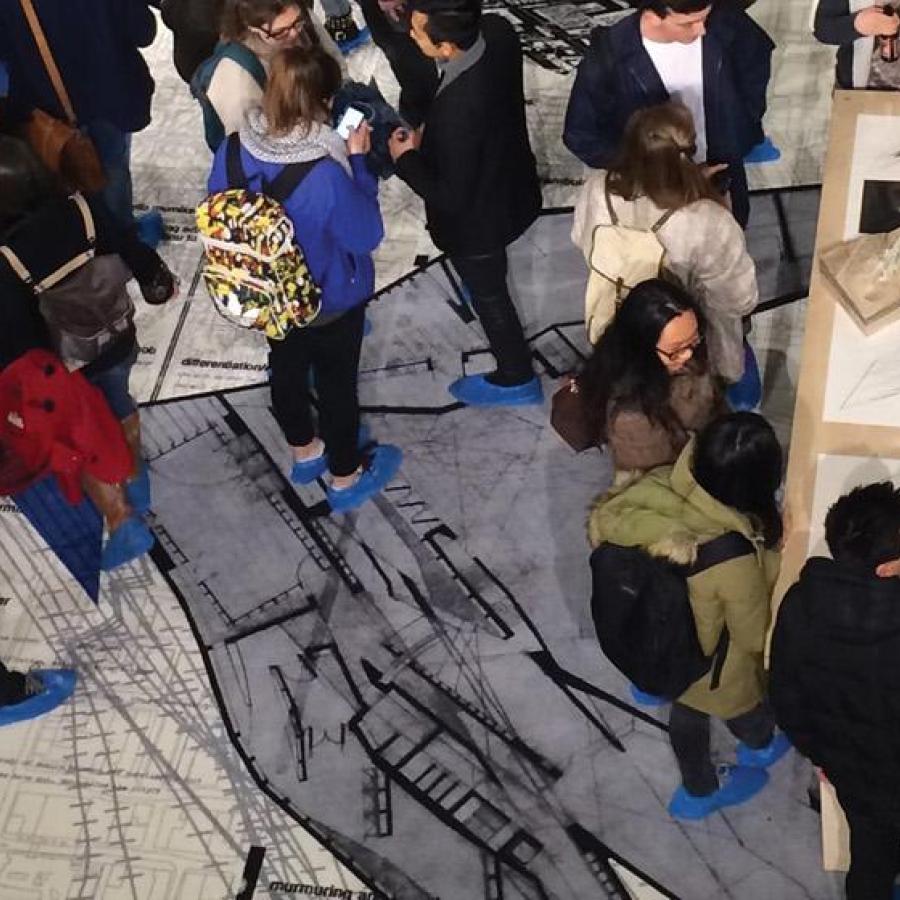Prof Richard Anderson

Job title:
Professor of Architectural History and Theory
Office:
Minto House, Room 2.56
Research Output:
Edinburgh Research Explorer linkBiography
Richard Anderson is Professor of Architectural History and Theory at the University of Edinburgh. His research focusses on the history of modern and contemporary architecture. Richard devotes particular attention to the relationship between architecture and socialism, attending to the impact that architectural thought and production beyond capitalism has had on the built environment of the planet. Recent research has focused on the media of representation and the politics of architectural details.
Richard’s book Wolkenbügel: El Lissitzky as Architect (MIT Press, 2024) addresses new approaches to architectural design and communication in the early years of the Soviet Union through a study of El Lissitzky’s visionary project for the ‘Wolkenbügel,’ which translates as ‘cloud iron’ and is often described as a ‘horizontal skyscraper.’ The book describes how one of the most celebrated and influential architectural projects of the early twentieth century—imagined by Lissitzky as a translation of painting into architecture—helped define the contours of modern architectural culture in Europe. Wolkenbügel builds on the work presented in three previous books: Russia: Modern Architectures in History (2015); Ludwig Hilberseimer’s Metropolisarchitecture and Selected Essays (2012; fourth print edition 2019); and, with Kristin Romberg, Architecture in Print: Design and Debate in the Soviet Union (2005). His essays have appeared in the journals AA Files, e-flux Architecture, Grey Room, GTA Papers, among others, and in many edited volumes. His writing has been translated into German, Russian, Spanish, and Portuguese. Richard co-chaired the Sixth International Conference of the European Architectural History Network (EAHN) in 2021.
Richard is a Fulbright Scholar, and his research has been supported by the Leonard A. Lauder Research Center for Modern Art at the Metropolitan Museum of Art, the American Council of Learned Societies, the Mellon Foundation, the Whiting Foundation, the National Endowment for the Humanities, the U.S. Department of Education, the Getty Foundation, and the German Academic Exchange Service (DAAD), among others.
Richard served as Head of the Edinburgh School of Architecture and Landscape Architecture (ESALA) from 2019-2024. Richard’s leadership promotes the creation of low-carbon educational futures based on principles of environmental and social justice. Prior to his tenure as Head of ESALA, Richard held a variety of leadership positions, including a term as Director for Postgraduate Learning and Teaching for Edinburgh College of Art, ESALA’s home within the University of Edinburgh.
Richard was born and raised in Los Angeles. Before college, he played guitar in several punk and hardcore bands, which toured California and had at least one fan as far away as Japan. In high school, he founded a chapter of the non-profit Food Not Bombs, a grassroots organization that distributes unwanted food to people in need. With the help of a community service scholarship, he studied art and art history at Pitzer College. As a Fulbright Scholar, he studied architectural history and theory at Berlin’s Technical University. At Moscow State University, he studied language and culture during his graduate education. Richard earned a PhD in 2010 from Columbia University’s Department of Art History and Archaeology, where he specialized in the history and theory of modern architecture and Russian art of the twentieth century.
Selected publications
Russia: Modern Architectures in History. (London: Reaktion Books, 2015)
Hilberseimer, Ludwig. Metropolisarchitecture and Selected Essays. Edited by Richard Anderson (New York: Columbia University Graduate School of Architecture, Planning and Preservation, 2012; second edition 2013).
Architecture in Print: Design and Debate in the Soviet Union, 1919-1935. (New York: Miriam and Ira D. Wallach Art Gallery Columbia University, 2005) (with Kristin Romberg).
‘A Screen that Receives Images by Radio.’ AA Files 67 (2013): 3-15.
‘Tatlin for Architects.’ In Tatlin: New Art for a New World: International Symposium, edited by Anna Szech (Ostfildern: Hatje Cantz, 2013): 258-62.
‘The International Fronts of Soviet Architecture, 1919-1939.’ In In Search of a Forgotten Architect: Stefan Sebök 1901-1942 (London: Architectural Association, 2012): 192-206.
‘USA/USSR: Architecture and War.’ Grey Room 34 (2009): 80-103.
‘Taking Stock: Documenting Russia's Modern Heritage.’ Future Anterior 5, no. 1 (2008): 81-86.
‘Tired of Meaning.’ Log 7 (2006): 11-13.
Current PhD students
Bengali Nationalism within the Modern Architectural Inception of Bangladesh, 1947-1971
Genealogy of Soviet Mass Housing
PhD Supervision Topics
- The History of Modern and Contemporary Architecture
- Architectural and Urban History




